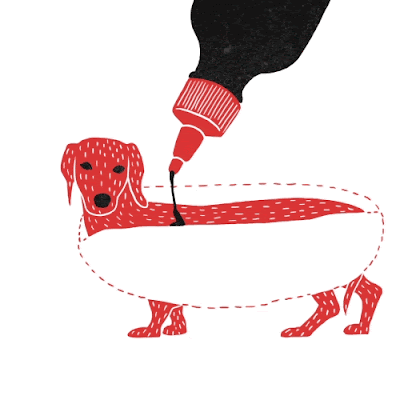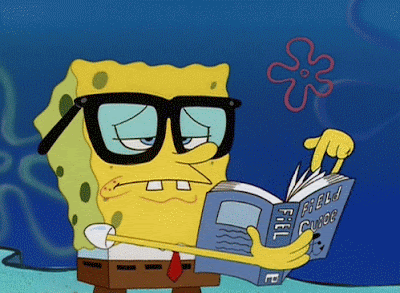New from NPR! 咖啡因能提神,連對蜜蜂的記憶力都能提升?多聽NPR,聽力絕對ㄅ婀棒!
 |
| gif animation from TED. |
嗜喝咖啡的人都曉得,一天不來個五六杯,其實很難處於清醒狀態。科學家研究發現,內含咖啡因的蜂蜜,也能讓蜜蜂們隻隻精神抖擻,甚至提升蜜蜂們的記憶力。不過這樣的結果還得有個前提才算數。欲知詳情,請下載檔案好好聽個夠喔。
If caffeine can boost the memory of bees, can it help us, too?
Most of us know what it feels like to have a little caffeine in our system. A cup of coffee wakes us up, gives us a bit of a buzz提神. Well, it turns out caffeinated nectar花蜜 does something similar for honey bees. That's the finding of a new study published in the journal Science, as NPR's Allison Aubrey reports.
ALLISON AUBREY, BYLINE: It's too early in the year to expect to see honey bees, says researcher Phil Stevenson, especially from his perch棲息處 at Royal Botanic Garden at Kew倫敦基尤皇家植物園, just outside London.
PHIL STEVENSON: That's right. I mean, I've seen a couple of queens from bumble bee colonies蜂群聚居 around, but no honey bees as of yet. Yes, it's still a bit chilly冷for that.
AUBREY: But it won't be long. And Stevenson says when the bees start foraging for food覓食 in spring, they take long flights in search of nectar and then haul拖拉 it back to their hives蜂窩.
Now it turns out some of this nectar actually contains caffeine. Not just the nectar of coffee plants, but also citrus plants柑橘植物 - including lemons, and oranges. So Stevenson and his colleague were curious. They wanted to know if this caffeinated nectar含有咖啡因的花蜜 influenced the behavior of bees. So they designed a study.
STEVENSON: And in this study, you can train bees to associate a reward of food with a smell. It's a little bit like Pavlov's dog巴夫洛夫的狗(古典制約). When Pavlov rang the bell, the dog salivated流口水. In this case, when the bee detects the smell, it extends its proboscis吸食的管狀器官.
AUBREY: The smell came from flowers, the proboscis is the bee's long, hairy tongue used to suck up the nectar.
Now, in the study, Stevenson wanted to see whether the bees would respond differently to flowers that contained a caffeine rich nectar含咖啡因蜜汁, compared to those that just had sugary nectar含糖的蜜汁.
STEVENSON: We found that when they were taking sugar nectar with caffeine, they were three times better able to remember the flowers a day later than bees that were feeding on to sugar alone.
AUBREY: So could this mean that a caffeinated bee has a better memory?
STEVENSON: That's exactly what the study shows. We were very surprised by it, but obviously we were also very excited because it shows that bees are better able to remember a flower. And, of course, for a bee this makes it better able to locate food.
AUBREY: Which is obviously a big plus加分作用 in life.
Now, some researchers wonder if bees simply prefer caffeinated nectar. But whether it's improving their memories or making them more motivated有動力的 to seek it out - it's intriguing引發興趣的 that caffeine can be giving these the same kind of buzz這邊指的是提振精神 that people get.
ABRAHAM PALMER: Caffeine absolutely influences our behavior. It changes mood and performance in a variety of different ways.
AUBREY: That's Abraham Palmer of the University of Chicago. He says due to genetic differences基因的不同, our individual responses to caffeine vary. But studies show that caffeine does work on our brain's reward system回饋系統, and in moderate doses適量 can help improve attention and performance on all sorts of mental and physical tasks. Some of the best studies come from the U.S. military, where caffeine has been studied as a way to keep soldiers alert機警.
Researcher Harris Lieberman explains he studied a group of sailors who were training to become Navy SEALs.美國海軍海豹部隊
HARRIS LIEBERMAN: During one portion of that training, they are substantially sleep deprived被嚴重剝奪睡眠 and exposed to a variety of other stressors壓力點.
AUBREY: Including cold temperatures and demanding physical activities吃重的體能活動. Lieberman says when he compared the sailor who consumed caffeine compared to those who had a non-caffeinated placebo不含咖啡因的安慰劑, he documented a range of benefits.
LIEBERMAN: We found that in moderate doses, caffeine enhanced提升 ability to pay attention, it enhanced vigilance警覺性.
AUBREY: And it seemed to improve the exhausted sailors' short-term memories短程記憶, something Lieberman was not expecting to see.
LIEBERMAN: We were somewhat surprised that caffeine had such widespread effects普遍廣泛的效果.
AUBREY: But Lieberman says, in the absence of exhaustion如果不是身體疲憊, caffeine doesn't seem to help people remember any better. So he doesn't think that caffeine is much of a memory booster提升記憶力的東西.
LIEBERMAN: No, I don't.
AUBREY: But whether it's humans or those bees, there's clearly something about caffeine that keeps us coming back for more. Allison Aubrey, NPR News.










老師我聽音檔第二段好像是: I've seen a couple of queens from bumblebee colonying around!
回覆刪除不知道對不對
公務英文班的Morris
Hi Morris,
回覆刪除You're right!
這邊我說明一下,我所使用的transcript都是NPR官網上提供的。
每篇的transcript的最後都會有下面這段話(我通常會刪除):
NPR transcripts are created on a rush deadline by a contractor for NPR, and accuracy and availability may vary. This text may not be in its final form and may be updated or revised in the future. Please be aware that the authoritative record of NPR's programming is the audio.
所以有時候確實會漏字或是打錯字。基本上只要不影響理解也還好。
我有時在課堂上,會讓學生把落掉的字填回去或是修改錯誤。
不過因為你沒有來上課,所以不曉得。
不過你能發現差異點,證明你的聽力非常好。
加油喔